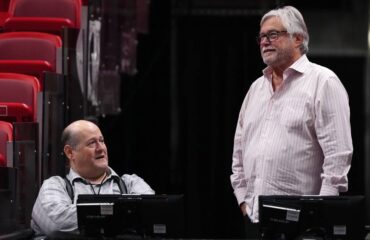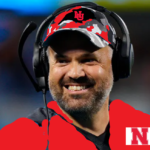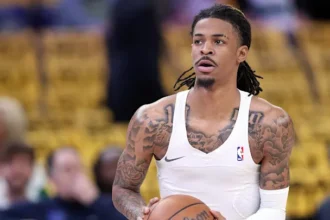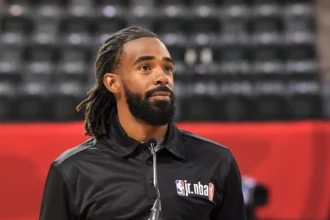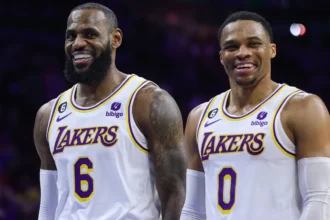After deciding to trade for guard Terry Rozier midway through last season, the Miami Heat understood that making major roster moves this offseason would be challenging. This has proven true, as the Heat has only added one new player to the roster through free agency: veteran guard Alec Burks, who joined on a one-year veteran minimum contract. “When we traded for Rozier, we knew our payroll would exceed the first apron,” said Heat general manager Andy Elisburg during a summer league interview.
By trading Kyle Lowry’s expiring $29.7 million salary and a first-round pick to the Charlotte Hornets for Rozier on January 23, the Heat sacrificed the cap flexibility they would have had this summer. Instead of the full $12.8 million midlevel exception, they were left with only the $5.2 million taxpayer midlevel exception and minimum contracts, also being ineligible for sign-and-trade transactions. “We made that move to compete early,” Elisburg explained. However, Rozier was unable to help in the playoffs due to a neck injury, and the Heat, missing key players like Jimmy Butler, exited in the first round against the eventual champion Boston Celtics.

Despite the lack of significant offseason additions, the Heat hopes internal improvement and a healthier roster will enable another deep playoff run. Elisburg emphasized focusing on draft opportunities and smaller transactions. This summer, the Heat retained free agents Haywood Highsmith, Kevin Love, and Thomas Bryant on manageable contracts, using Bird rights to sign Highsmith and Love above the minimum and bringing back Bryant on a minimum deal. “Negotiating fair deals for both sides is part of the free agency process,” Elisburg noted.

The Heat plans to enter the upcoming season with 14 standard contracts, one short of the 15-player limit, to avoid crossing the punitive second apron. Elisburg mentioned the possibility of adding a 15th player mid-season when the pro-rated amount wouldn’t exceed the second apron. “We’ve had success filling that 15th spot during the season,” he said, referencing players like Max Strus and Caleb Martin.
Elisburg confirmed the Heat’s intention to avoid crossing the second apron to maintain flexibility for potential trades. “We want to stay flexible to improve the team,” he added, highlighting the restrictions of being above the second apron. He also mentioned that the Heat has long admired Burks, and the opportunity to sign him this year at a minimum was finally feasible.

Regarding Dru Smith, who received a two-way contract despite rehabbing from a knee injury, Elisburg expressed optimism about his improvement and potential contributions. He also addressed Jimmy Butler’s contract situation, noting that there is no rush to extend Butler, who is eligible for a maximum two-year extension but may wait to pursue a max contract next summer. “We want Jimmy in Miami, and he wants to be here,” Elisburg concluded, confident that the situation will resolve in time.
